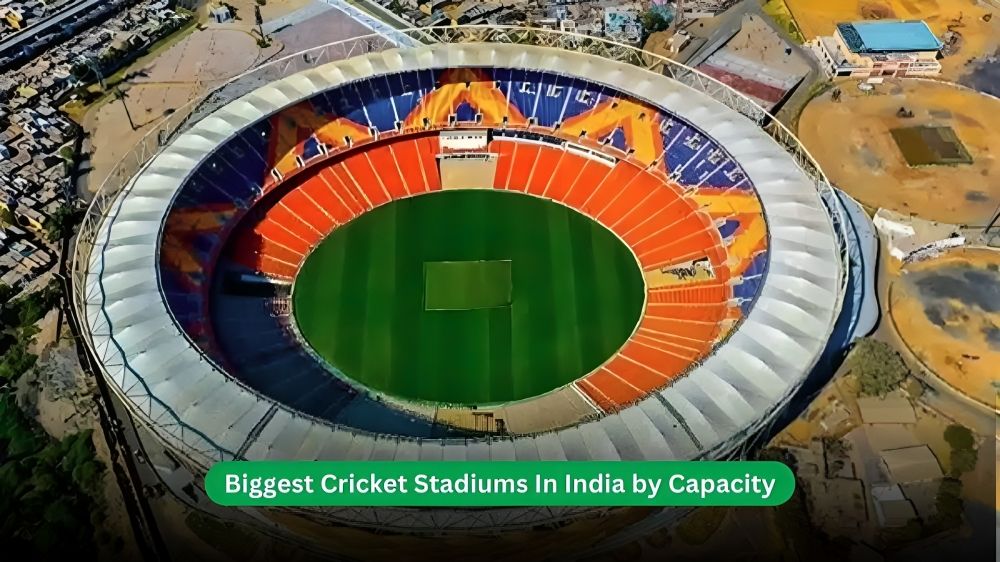Discover India’s top 5 iconic football stadiums, celebrated for their rich history, architectural brilliance, and passionate crowds. From Kolkata’s Salt Lake Stadium to Kozhikode’s EMS Stadium, these venues have hosted legendary matches, nurtured talent, and fueled India’s football culture, making them integral to the nation’s sporting landscape.
1. Vivekananda Yuba Bharati Krirangan (Salt Lake Stadium)
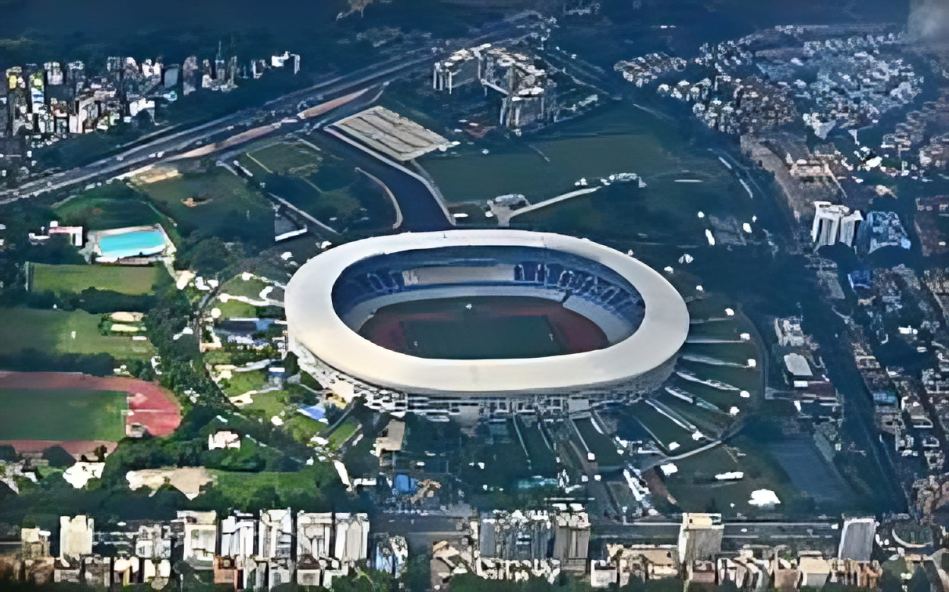
Historical Significance
The Vivekananda Yuba Bharati Krirangan, or Salt Lake Stadium in Kolkata, is India’s largest football venue, accommodating 85,000 fans. Renowned for hosting landmark events like the 2017 FIFA U-17 World Cup, it doubles as a cultural epicenter for football lovers. As the home ground for iconic clubs ATK Mohun Bagan and East Bengal FC, it’s the stage for the thrilling Kolkata Derby, a fierce rivalry that epitomizes Indian football’s passion and legacy.
Architectural Features
The stadium’s distinctive bowl-shaped architecture amplifies acoustics, creating an electrifying match-day atmosphere. Built in 1984, it has been modernized through multiple renovations to remain a top-tier sports venue. The open-air design allows natural light to illuminate the seating areas, enhancing the spectator experience. Its thoughtfully planned layout ensures clear, unobstructed views from every seat, making it a favorite among fans.
2. Jawaharlal Nehru Stadium (New Delhi)
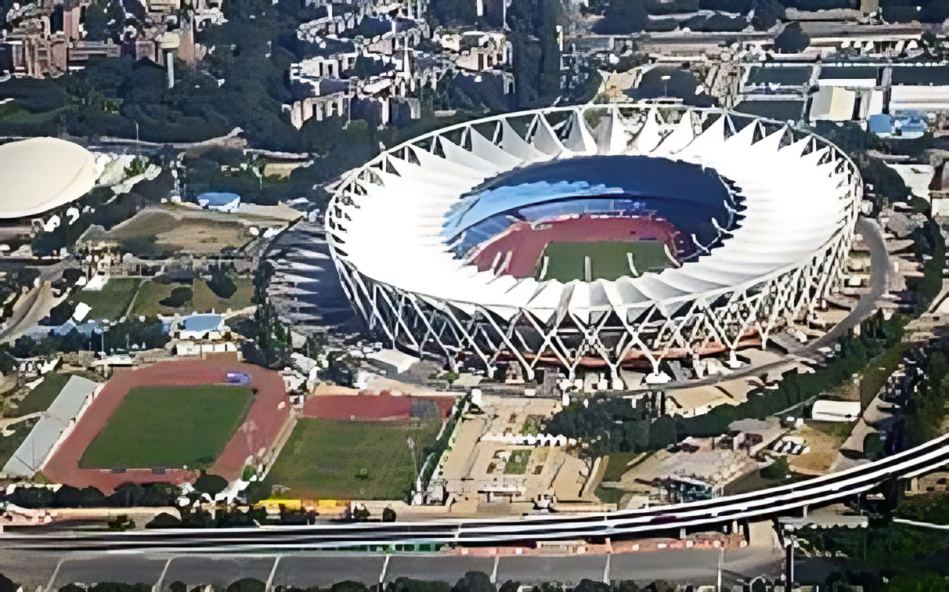
Historical Significance
The Jawaharlal Nehru Football Stadium in New Delhi, built for the 1982 Asian Games, boasts a seating capacity of 60,000. Over the years, it has hosted major events, including the 2010 Commonwealth Games, and played a key role in advancing sports in India. Known for its historical significance, this stadium has been the site of numerous landmark moments, contributing to the growth of Indian football and other sports.
Architectural Features
San Fernando’s stadium embraces modernist architecture with its open design and state-of-the-art amenities. Recent upgrades to its interior, lighting, and sound systems have enhanced its functionality, making it suitable for various sports. The circular design ensures that every seat offers excellent visibility, creating an immersive experience for fans, regardless of their position.
3. Jawaharlal Nehru Stadium (Kochi)
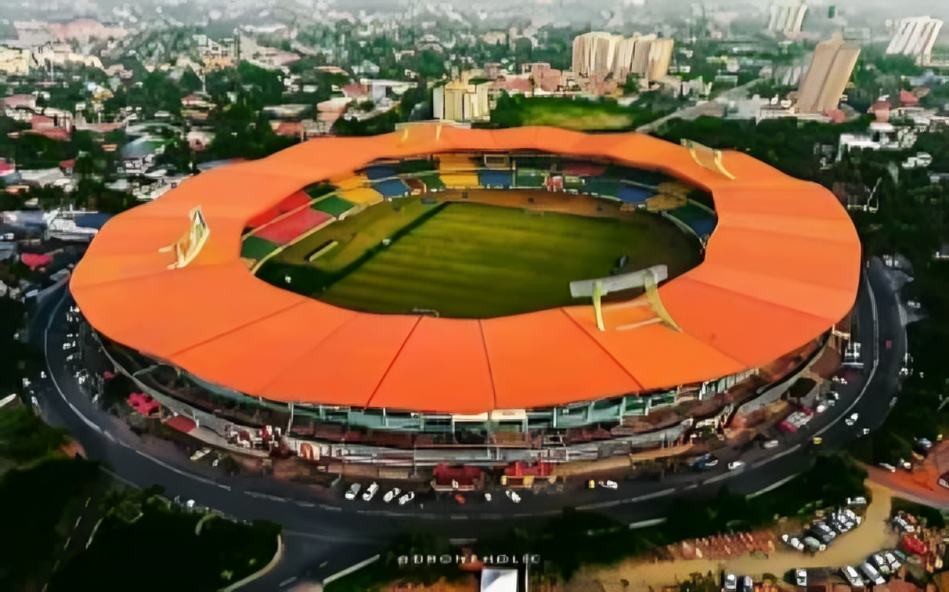
Historical Significance
Kochi’s Jawaharlal Nehru Stadium, also known as Kaloor Stadium, is renowned for its passionate fanbase. With a seating capacity of 39,000, it gained prominence when the Nehru Cup was hosted in 1997, attracting a large turnout. Originally built for cricket, the stadium transitioned to football due to Kerala’s deep love for the sport. Today, it serves as the home ground for Kerala Blasters FC, one of the most popular and successful teams in the Indian Super League (ISL).
Architectural Features
The stadium is equipped with modern amenities designed to enhance fan experience and interaction. Its architecture ensures excellent visibility and acoustics, with the sound of cheers resonating throughout the venue during matches. While the infrastructure supports various sports, the primary focus remains on football, making it a key destination for football enthusiasts.
4. Cooperage Football Stadium
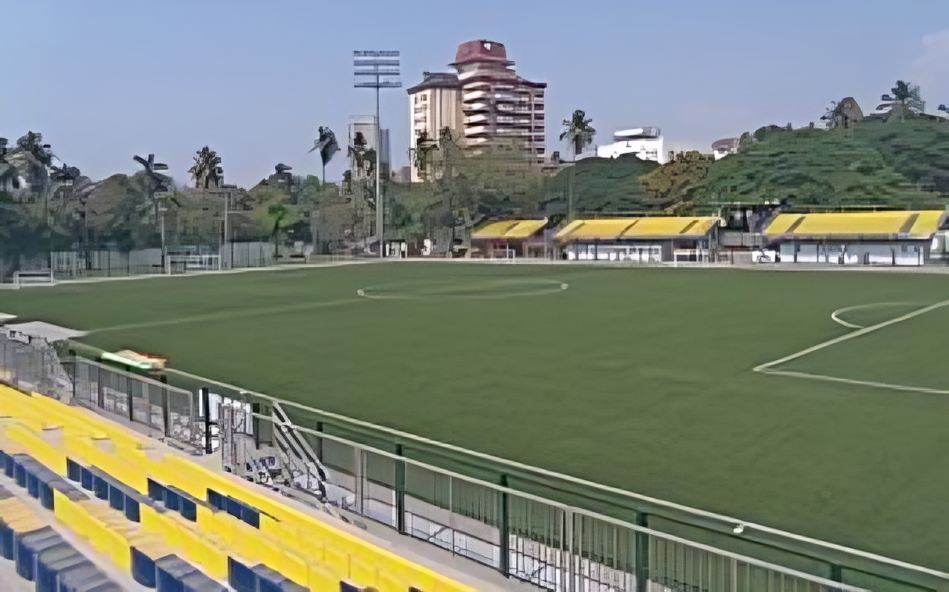
Historical Significance
Cooperage Football Stadium, located in Mumbai, holds a significant place in Indian football history. With a modest capacity of 20,000, it has played a crucial role in nurturing local talent and hosting national league events. The stadium has been the backdrop for many legendary players and clubs during its time as a venue for the National Football League (NFL). Its intimate atmosphere brings players closer to the fans, creating an exciting and personal match experience.
Architectural Features
Cooperage Football Stadium’s compact size creates a lively atmosphere, where fans can feel closely connected to the action. Its proximity to Marine Drive adds to the appeal, offering stunning views during evening matches. While it may not compare to larger stadiums, Cooperage continues to make a significant contribution to Mumbai’s sports culture, maintaining its importance in the city’s football landscape.
5. EMS Stadium
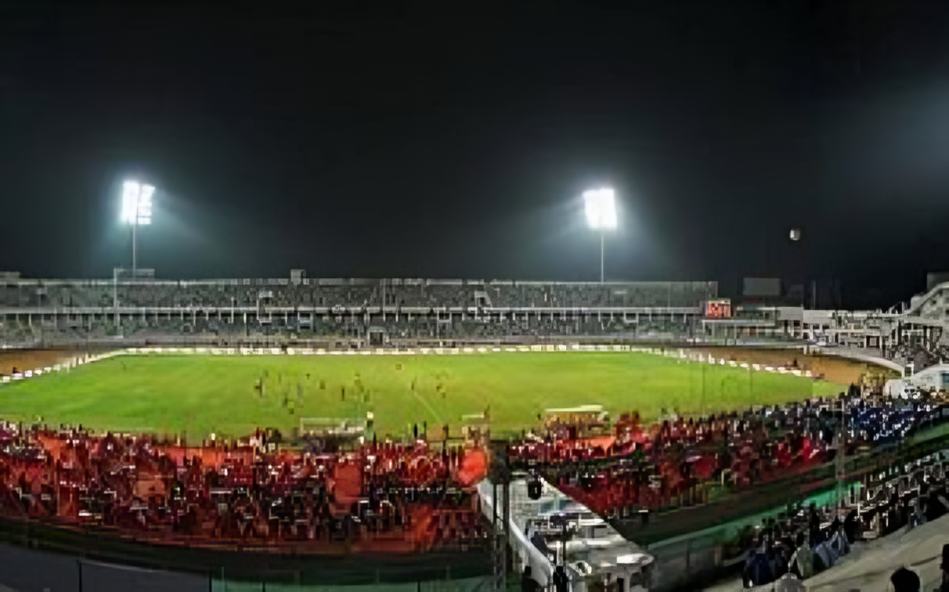
Historical Significance
EMS Stadium in Kozhikode, with a seating capacity of 80,000, is a key football venue in Kerala. Named after E.M.S. Namboodiripad, the first Chief Minister of Kerala, the stadium has hosted I-League matches and international games. It holds a special place in Kerala’s football history, having witnessed many memorable matches that contributed to the state’s rich sporting legacy.
Architectural Features
EMS Stadium features modern facilities for both players and spectators, ensuring a comfortable experience for all attendees. Its open and accessible architecture allows for ample seating, accommodating large crowds, especially during major events. This design helps foster a vibrant atmosphere, enhancing the overall experience for fans and contributing to the stadium’s reputation as a premier venue in Kerala.
| Football Stadiums in India | Location | Capacity | Notable Events |
| Vivekananda Yuba Bharati Krirangan (Salt Lake Stadium) | Kolkata | 85,000 | 2017 FIFA U-17 World Cup, ISL matches |
| Jawaharlal Nehru Stadium | New Delhi | 60,000 | 1982 Asian Games, Commonwealth Games 2010 |
| Jawaharlal Nehru Stadium | Kochi | 39,000 | Nehru Cup 1997, ISL matches |
| Cooperage Football Stadium | Mumbai | 20,000 | National Football League matches |
| EMS Stadium | Kozhikode | 80,000 | I-League matches, various international fixtures |
E2BET: Welcome! Bet on Your Favorite Teams and Players!
- How to Bet on Cricket Using e2bet: A Guide for Beginners
- E2Bet Bonus Maximization: Strategies for Success





